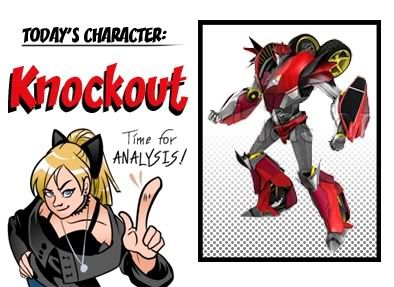 |
| Professional Superhero on Closed Course - Do not try at home |
A lot of these various tropes can be traced back to one rule of television drama - a rule that trumps all else, that might even be thought as a 'Prime Directive', or at least a Commandment. It is simply this: Good Guys don't kill people. Oh sure, at the climax the cop, having exhausted every other possibility, might 'be forced' to put lethal fire on the criminal, but only in order to save innocent lives. One of the reasons we have conventions like Zombies, Cylons, Aliens, and other threatening non-human creatures is that it allows the writers to run up the body count without calling into question the inherent goodness and humanity of the protagonist. Otherwise, it is the bad guys who establish their essential badness by killing people.
Fortunately, in the evolution of TeeVee entertainment, many of the more ridiculous manifestations of this rule have been abandoned, from shooting the gun out of the bad guy's hand to goading him into putting down his weapons and indulging in a fistfight instead. But one particular method for overcoming a lethal enemy without killing him remains in full, standard rotation - to this day we see it so often we take it for granted. It is not to be questioned, for it allows us to end the fight with the 'right' winner and move the plot forward without requiring the character ambiguity of a homicide. We're talking of course, about the Traumatic Brain Injury, more generally known as a blow to the head. On TeeVee, when someone is hit over the head, whether with a gun butt, a shovel, a rock, or just about any other piece of industrial detritus that might be available when needed, they dutifully collapse unconscious to the floor, where they then lay in harmless compliance until their input is once again called for in the script. Interestingly, no one ever fails to collapse in abject helplessness, and in spite of the punches we see people take in fight scenes in the very same episode, they never fight back. On the other hand, they never go into seizures and die, or fall into a coma, or bleed to death from a fractured skull either. They just sleep. An interesting alternative version appeared on Star Trek, where Spock was able to accomplish the same means with even less violence, just a gentle squeeze on the shoulder.
The reason for the endurance of the whack on the head in teevee and movies is clear. The script writer needs a plot contrivance to get on with the story. It comes at the end of an action sequence, and depending upon where it takes place in the story, either the bad guy needs to take the good guy prisoner and escape, the minion needs to be captured by the good guys and interrogated or the bad guy needs to lose without dying. A little stylized blunt-force trauma gets the job done every time.
However, a widespread understanding of the seriousness of brain injury resulting from the American experience during the occupation of Iraq and Afghanistan, along with the dawning realization in the competitive athletics community, particularly the NFL, that repeated blows to the head cause permanent damage and destroy lives, there may, at some point begin to be some public outcry against this casual approach to hitting people on the head. It's hard to see the writers giving it up altogether though - it is a near perfect solution to a particularly hard plot problem, one that we've been trained to accept thoughtlessly over the last hundred years of cinematic entertainment.
...
"Convention"!?!?!?!?!
ReplyDeleteSsshhhh!
ReplyDeleteOn teevee they're just shambling actors...
as far as you know.
ReplyDeleteOh crap. I have GOTS to steal a good shovel...
ReplyDeleteIt's a hell of a thing...
ReplyDelete~
Yeah. Not to mention.
ReplyDeletesquealing tires and tight cornering
ReplyDeleteEsp. on gravel roads.
Depraved indifference?
ReplyDeleteIt is simply this: Good Guys don't kill people.
ReplyDeleteI recently downloaded the Conan remake, which is awful of course. It is also, however, strikingly forthright in having the killer be a guy who really really really (really) enjoys killing people. Didn't do well, but 300 sure did.
Yes. And leave it to Elmore Leonard to recognize this construct and place its deconstruction at the center of the moral ambiguity in "Justified".
ReplyDeleteBut the general idea still drives much of teevee drama...
Also, Breaking Bad and The Shield play with that convention in amusing ways.
ReplyDelete